Find Help
More Items From Ergsy search
-

Flu can be fatal
Relevance: 100%
-
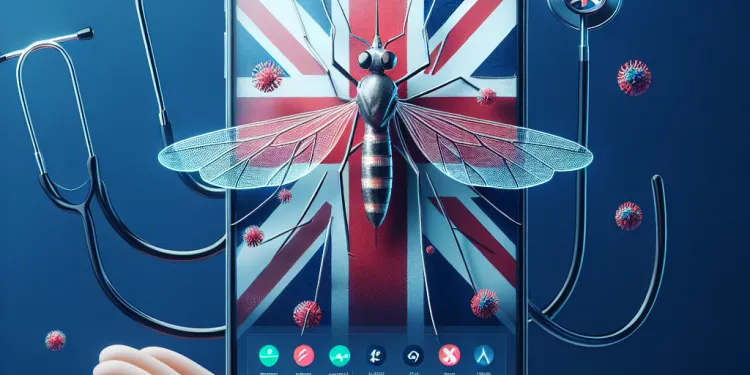
Is Chikungunya fatal?
Relevance: 63%
-

Can asthma be fatal?
Relevance: 62%
-

Is Huntington's disease fatal?
Relevance: 58%
-

Just the flu? | NHS
Relevance: 54%
-
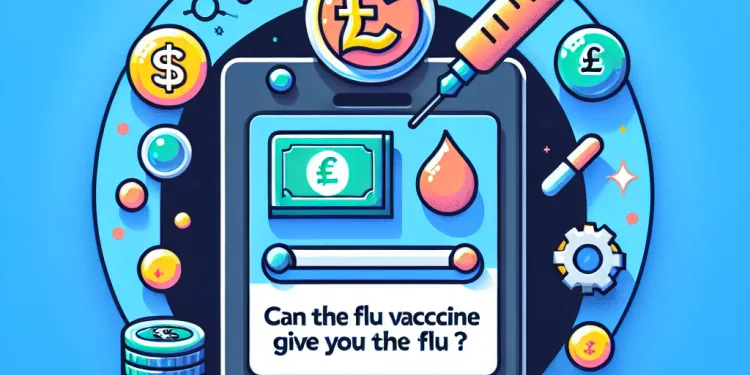
Can the flu vaccine give me the flu?
Relevance: 50%
-

Can the flu jab give me the flu?
Relevance: 50%
-

Can the flu vaccine give you the flu?
Relevance: 48%
-
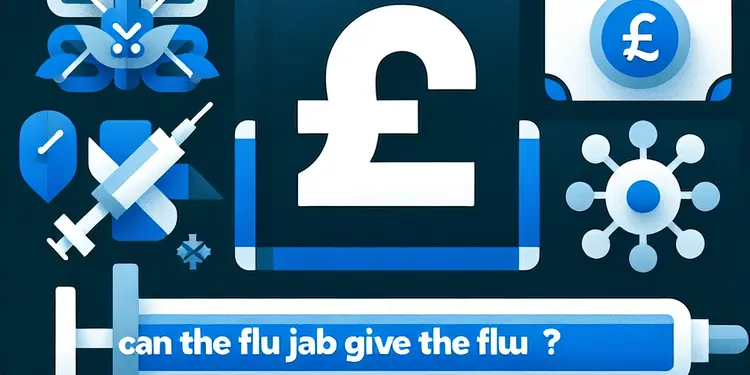
Can the flu jab give you the flu?
Relevance: 48%
-

Is the winter flu jab effective against all flu strains?
Relevance: 46%
-

What is Super Flu?
Relevance: 46%
-

Is the Super Flu contagious?
Relevance: 46%
-
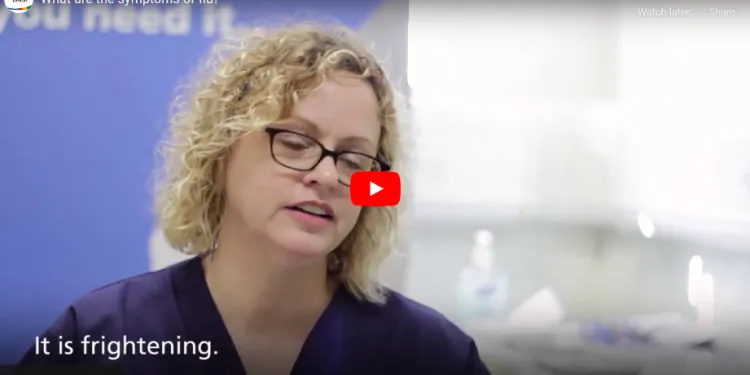
What are the symptoms of flu ?
Relevance: 46%
-
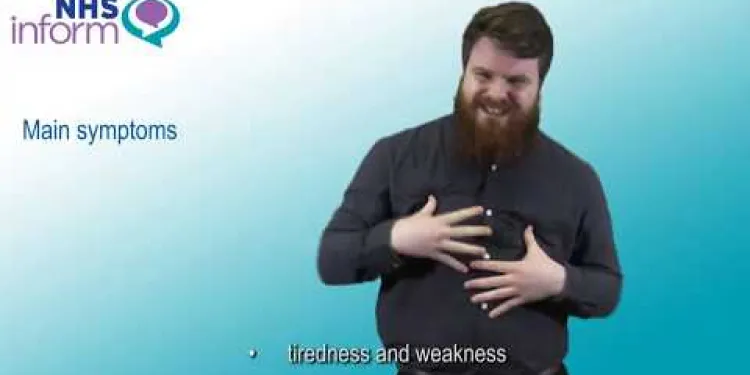
Symptoms of flu (influenza)
Relevance: 46%
-
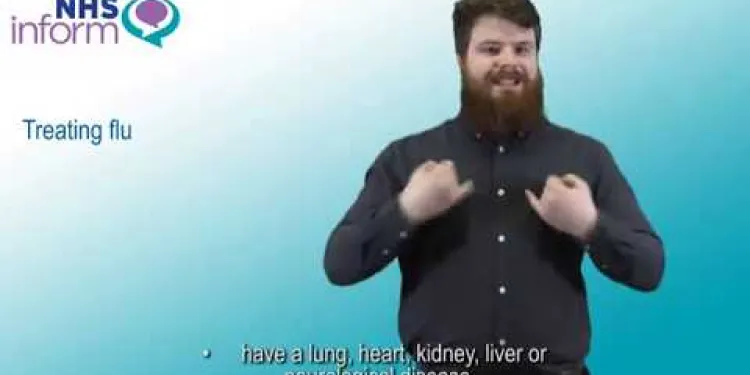
Treating flu (influenza)
Relevance: 45%
-

What is the winter flu jab?
Relevance: 45%
-

How effective is the flu vaccine?
Relevance: 44%
-

Is the flu vaccine free for everyone in the UK?
Relevance: 44%
-

Why does H3N2 often lead to more severe flu seasons?
Relevance: 44%
-

How is Super Flu diagnosed?
Relevance: 44%
-

What causes Super Flu?
Relevance: 44%
-

What are the symptoms of Super Flu?
Relevance: 44%
-

What are the symptoms of H3N2 flu?
Relevance: 43%
-

What is the H3N2 flu strain?
Relevance: 43%
-

Who should get the flu vaccine in the UK?
Relevance: 43%
-

Is the flu jab necessary for healthy individuals?
Relevance: 43%
-

Can Super Flu be prevented by vaccines?
Relevance: 43%
-

Is flu season going to be bad in 2026?
Relevance: 43%
-
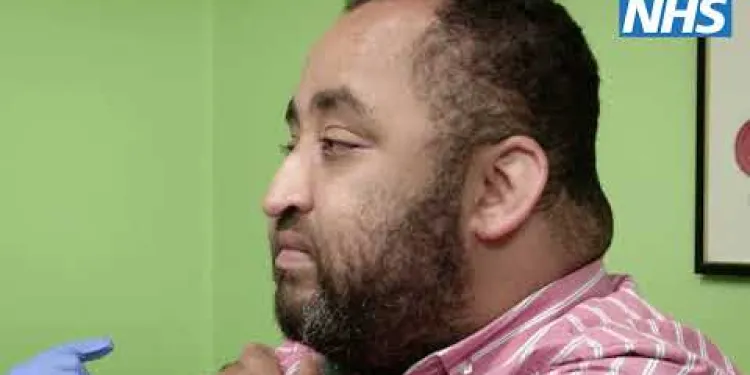
Flu vaccinations for people with a learning disability
Relevance: 43%
-

Where can I get the flu vaccine?
Relevance: 43%
-
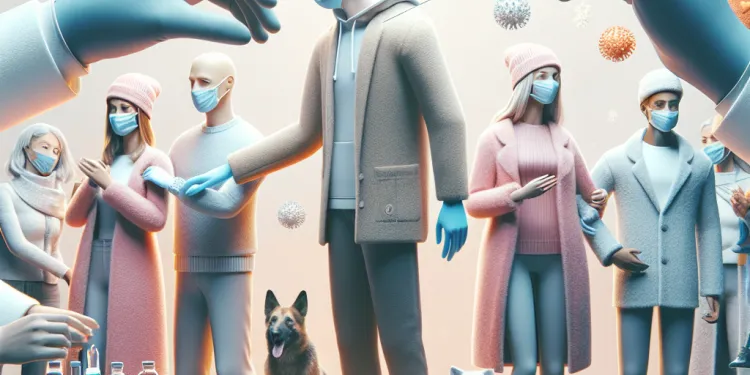
Understanding Seasonal Flu: Prevention and Treatment
Relevance: 43%
-

Is Super Flu a new strain of virus?
Relevance: 43%
-
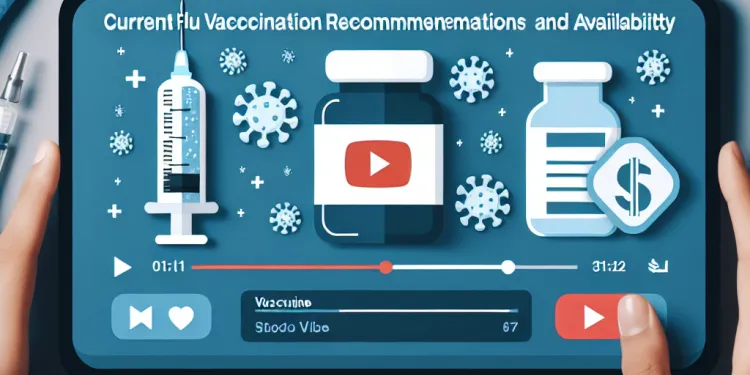
Current Flu Vaccination Recommendations and Availability
Relevance: 43%
-

Has Super Flu occurred in the past?
Relevance: 43%
-

How do I book an appointment for the flu vaccine?
Relevance: 42%
-

What treatments are available for Super Flu?
Relevance: 42%
-

Can animals get Super Flu?
Relevance: 42%
-

Are there any side effects to the flu vaccine?
Relevance: 42%
-

When is the best time to get the flu vaccine?
Relevance: 42%
-

How often does Super Flu occur?
Relevance: 42%
Flu Can Be Fatal
Introduction
The flu, or influenza, is often underestimated as just a severe cold, but it can be far more serious. In the United Kingdom, flu can lead to severe health complications and, in some cases, it can be fatal. This article provides detailed information on how flu can turn deadly and the importance of prevention and treatment.
Understanding the Flu
Influenza is a viral infection that primarily affects the respiratory system, including the nose, throat, and lungs. It spreads easily from person to person through droplets when an infected person coughs, sneezes, or talks. While most people recover within a week, the flu can lead to severe complications, especially in vulnerable populations.
High-Risk Groups
Certain groups are more susceptible to severe complications from the flu, including:
- Older adults (65 years and older)
- Young children, especially under 2 years of age
- Pregnant women
- Individuals with chronic conditions such as asthma, diabetes, or heart disease
- People with weakened immune systems
Potential Complications
Flu can lead to complications such as pneumonia, bronchitis, sinus infections, and ear infections. In extreme cases, it can cause respiratory failure and exacerbate chronic medical conditions. Hospitalization may be required for severe cases, and unfortunately, some of these can result in death.
Statistics in the UK
In the United Kingdom, seasonal flu epidemics can cause thousands of deaths each year, particularly during bad flu seasons. Public Health England closely monitors flu activity and provides annual flu vaccination programmes to reduce the incidence and severity of the illness.
Prevention and Treatment
Preventive measures are the most effective way to protect oneself from the flu:
- Vaccination: The annual flu vaccine is the best defense against the flu. It is updated annually to combat the most current strains of the virus.
- Hygiene: Regular hand washing, using hand sanitizers, and covering coughs and sneezes can help prevent the spread of the flu virus.
- Antiviral medications: These can be prescribed to reduce the severity and duration of flu symptoms if taken shortly after onset.
Conclusion
The flu should not be dismissed as a minor illness. It can be fatal, especially among high-risk groups. Awareness, vaccination, and good hygiene practices are essential to safeguard against this potentially deadly virus. Staying informed and taking proactive measures can help protect you and your loved ones from flu and its severe consequences.
Flu Can Be Deadly
What You Need to Know
The flu is a type of virus that can make you very sick. Some people think it is just a bad cold, but it can be much worse. In the UK, the flu can cause big health problems and sometimes people can die from it. This article will tell you why the flu can be so dangerous and how you can stop it from making you sick.
What is the Flu?
The flu is a virus that affects your nose, throat, and lungs. You can catch it from tiny droplets when someone sick coughs, sneezes, or talks near you. Most people get better in about a week, but some people can get really sick from it.
Who Can Get Really Sick?
Some people are more likely to get very sick from the flu. These people include:
- Older people (65 years and older)
- Little kids, especially under 2 years old
- Pregnant women
- People with health problems like asthma or heart disease
- People with weak immune systems
What Can Happen if You Get the Flu?
If you get the flu, it can lead to other problems like pneumonia, bronchitis, sinus infections, and ear infections. Some people might need to go to the hospital, and in very bad cases, people can die from it.
Flu Facts in the UK
In the UK, the flu can cause thousands of deaths each year, especially in bad flu seasons. Public Health England helps by giving out flu vaccines each year.
How Can You Stop the Flu?
There are ways to protect yourself from the flu:
- Get the flu shot: The yearly flu vaccine is the best way to stop the flu. It is updated every year to fight the most common flu types.
- Stay clean: Wash your hands often, use hand sanitizers, and cover your mouth when you cough or sneeze to stop the spread of germs.
- Use medicine: Doctors can give you medicine that makes the flu less serious if you take it soon after getting sick.
Final Thoughts
Do not think of the flu as a small illness. It can be very serious and even deadly, especially for certain groups. Knowing about the flu, getting vaccinated, and staying clean are important in protecting yourself and others from getting very sick. Stay informed and take steps to keep you and your family safe from the flu.
Frequently Asked Questions
What is the flu?
The flu, or influenza, is a contagious respiratory illness caused by influenza viruses that infect the nose, throat, and sometimes the lungs.
Can the flu be fatal?
Yes, the flu can be fatal, especially for vulnerable populations such as older adults, young children, pregnant women, and individuals with certain chronic health conditions.
How is the flu transmitted?
The flu is primarily transmitted through droplets when an infected person coughs, sneezes, or talks. It can also spread by touching surfaces contaminated with the virus and then touching the face.
What are common symptoms of the flu?
Common symptoms include fever, chills, cough, sore throat, runny or stuffy nose, muscle or body aches, headaches, and fatigue.
How can I protect myself from the flu?
Getting vaccinated annually, practicing good hygiene such as frequent handwashing, avoiding close contact with sick individuals, and disinfecting frequently touched surfaces can help protect you from the flu.
Who should get the flu vaccine?
Everyone aged six months and older is recommended to get the flu vaccine each year, with particular emphasis on high-risk groups like older adults, young children, and individuals with chronic health conditions.
When is the flu season in the UK?
Flu season in the UK usually runs from October to March, with peak activity often occurring in the colder winter months.
Can the flu be treated?
Yes, antiviral medications can treat the flu. These are most effective when taken within 48 hours of symptom onset. Rest, hydration, and over-the-counter medications can help alleviate symptoms.
What complications can arise from the flu?
Complications from the flu can include pneumonia, bronchitis, sinus infections, ear infections, and worsening of chronic medical conditions, which can be life-threatening.
How long is someone with the flu contagious?
People with the flu are most contagious in the first 3-4 days after their illness begins, but they can spread the virus starting 1 day before symptoms appear and up to 7 days after becoming sick.
Can you get the flu from the flu vaccine?
No, you cannot get the flu from the flu vaccine. The vaccine contains inactivated virus or viral particles that cannot cause illness.
What should I do if I think I have the flu?
If you think you have the flu, you should stay home, rest, drink plenty of fluids, and use over-the-counter medications to manage symptoms. If you are in a high-risk group or experience severe symptoms, consult a healthcare professional.
Can the flu be prevented other than vaccination?
In addition to vaccination, other preventive measures include washing your hands frequently, avoiding close contact with the sick, covering your mouth and nose when coughing or sneezing, and cleaning and disinfecting surfaces regularly.
Is there a difference between a cold and the flu?
Yes, although both are respiratory illnesses, the flu is generally more severe, with symptoms such as high fever, body aches, and fatigue being more intense and the potential for serious complications.
Does the flu vaccine cause side effects?
Most people experience only mild side effects from the flu vaccine, such as soreness at the injection site, a low-grade fever, or muscle aches, which generally resolve within a few days.
What is the flu?
The flu is a virus that makes people sick. It can give you a fever, cough, and make you feel very tired.
Here are some ways to stay healthy:
- Wash your hands often with soap and water.
- Cover your mouth when you cough or sneeze.
- Get a flu shot from the doctor.
If you have trouble reading, you can ask someone to read this to you. You can also use tools that read text out loud or make the text bigger.
The flu is a sickness. It can spread from person to person. The flu is caused by germs called influenza viruses. These germs can make your nose, throat, and sometimes your lungs sick.
Can the flu cause death?
The flu can be very dangerous. It can make people die. This is more common for older people, young children, pregnant women, and people who are already sick.
How do people catch the flu?
The flu spreads when a sick person coughs, sneezes, or talks. Small drops with germs come out and can make others sick. You can also get the flu by touching things with the flu germs on them, then touching your face.
What are signs you might have the flu?
Some of the usual signs of being sick are:
- Feeling hot or having a fever.
- Feeling cold and shivering.
- Coughing a lot.
- Throat hurts.
- Nose is runny or blocked.
- Muscles or body hurts.
- Head hurts or headaches.
- Feeling very tired or worn out.
If needed, use tools like a picture dictionary or read out loud to understand better.
How can I keep safe from the flu?
The flu is a sickness that can make you feel very sick. Here are some simple ways to stay safe:
- Get the flu shot: A flu shot is a medicine that helps your body fight the flu.
- Wash your hands: Use soap and water to clean your hands often.
- Stay away from sick people: If someone is coughing or sneezing, try to keep your distance.
- Cover your mouth: Use a tissue or your elbow when you cough or sneeze.
- Eat healthy foods: Eating fruits and veggies helps your body stay strong.
- Get plenty of sleep: Sleep helps your body heal and stay healthy.
Using these tools can help keep you safe from getting the flu.
Get a flu shot every year, wash your hands a lot, stay away from people who are sick, and clean things you touch often. This helps keep you safe from the flu.
Who should get the flu shot?
The flu shot helps you stay healthy. It is good for most people, but some people need it more. Here's who should get the shot:
- Kids aged 6 months and up
- Elderly people (65 and older)
- People who are sick a lot
- Pregnant women
- People who work in hospitals
If you need help, ask a doctor or nurse. They can tell you if you should get the shot.
It's important for everyone who is six months or older to get the flu shot every year. It helps keep you healthy.
Some people really need the flu shot, like:
- Older people
- Young children
- People who are often sick
Getting the flu shot can help protect you and those around you from getting sick.
When do people usually get the flu in the UK?
In the UK, flu season is from October to March. Most people get sick during the coldest winter months.
Can you get better from the flu?
Yes, there are medicines called antivirals that can help make you feel better when you have the flu. They work best if you take them within 2 days after you start feeling sick. It's also important to rest, drink lots of water, and take medicine you can buy at the store to help with your symptoms.
What problems can the flu cause?
Sometimes, the flu can cause other health problems. These problems can be very serious. They might include:
- Lung problems like pneumonia
- Breathing problems like bronchitis
- Sinus infections
- Ear infections
- Making other health problems get worse
These problems can be very dangerous.
How long can you give the flu to someone else?
When you have the flu, you can pass it to others before you feel sick and when you are sick. Here is how it works:
- You can give the flu to others 1 day before you start to feel sick.
- You can still pass it to others for 5 to 7 days after you feel sick.
Tools like using a calendar can help you keep track of your days. If you are asked to rest, you can use a pillow and blanket to stay comfortable.
When you have the flu, you can give the virus to others. This happens most in the first 3 to 4 days when you start to feel sick. However, you can spread the virus even before you know you are sick, starting 1 day before you have any signs. You can also spread it up to 7 days after you start feeling sick.
Here are some tips to help keep others safe:
- Use tissues to cover your mouth and nose when you sneeze or cough.
- Wash your hands often with soap and water.
- Stay home if you feel sick to stop the virus from spreading.
Can the flu shot make you sick with the flu?
No, the flu shot cannot give you the flu.
The flu shot has dead germs in it. Dead germs cannot make you sick.
Sometimes, people might feel a little bit sick after the shot. This is because the body is learning to fight the flu.
It's good to talk to a doctor or nurse if you have questions.
Using a calendar to track when you get shots can help.
No, you won't get the flu from the flu shot. The shot has tiny pieces of the virus that are not alive, so they can't make you sick.
What to Do if You Think You Have the Flu
If you feel sick and think it might be the flu, here is what you can do:
- Tell a parent or an adult you trust how you feel.
- Take it easy and rest a lot.
- Drink plenty of water and warm drinks.
- If you feel very sick or have a high fever, ask someone to help you see a doctor.
These tips can help you feel better:
- Wash your hands often to stop spreading germs.
- Cover your mouth with a tissue or your elbow when you cough or sneeze.
- If you are worried, use a simple guide or app to learn more about the flu.
If you think you have the flu, here are some things you can do:
- Stay home and rest.
- Drink lots of water and other drinks.
- You can take medicine you buy at the store to help you feel better.
- If you are older, very young, or have other health problems, talk to a doctor or nurse.
- If you feel very sick, see a healthcare professional.
Is there a way to stop the flu without getting a vaccine?
Here are some easy tips to help you stay healthy:
- Wash your hands often with soap and water.
- Try not to touch your face with your hands.
- Stay away from people who are sick.
- Eat healthy foods and get lots of sleep.
- Use tissues when you sneeze or cough.
- Clean things you touch a lot, like door handles.
If you find it hard to read, you can ask someone to help you or use tools like audiobooks to listen to the information.
There are things you can do to stay healthy:
- Get your shots.
- Wash your hands often.
- Stay away from people when they are sick.
- Cover your mouth and nose when you cough or sneeze.
- Clean things you touch a lot.
You can use pictures or videos to help you understand. Ask a friend or family member if you need help.
What's the difference between a cold and the flu?
Do you know if you have a cold or the flu? They both make you feel sick, but they are not the same.
- A cold might give you a runny nose and a sore throat.
- The flu can make you feel very tired and give you a fever.
When you're sick, it's good to:
- Rest a lot.
- Drink plenty of water.
- Ask an adult if you need to see a doctor.
Yes, both the flu and a cold affect your breathing. But the flu is usually worse. With the flu, you might get a high fever, your body might hurt a lot, and you might feel very tired. The flu can also make you much sicker than a cold can.
To help with reading, you can:
- Use a ruler or your finger to follow the words.
- Read out loud or listen to someone read.
- Take breaks if it's hard to keep reading for a long time.
Can the flu shot make you feel unwell?
Getting the flu shot might make you feel a little sick. Some people get a sore arm, feel tired, or have a fever. These usually go away in a few days.
If you get a flu shot, it can help to:
- Rest and take it easy.
- Drink lots of water.
- Ask a grown-up if you can take medicine if you feel sore or have a fever.
When people get the flu vaccine, most feel only a little sick. They might have a sore arm where they got the shot. Some might have a small fever or feel their muscles hurt. These things usually go away in a few days. Using a cool cloth on the sore spot or taking a little rest can help you feel better faster.
Useful Links
This website offers general information and is not a substitute for professional advice.
Always seek guidance from qualified professionals.
If you have any medical concerns or need urgent help, contact a healthcare professional or emergency services immediately.
Some of this content was generated with AI assistance. We’ve done our best to keep it accurate, helpful, and human-friendly.
- Ergsy carfully checks the information in the videos we provide here.
- Videos shown by Youtube after a video has completed, have NOT been reviewed by ERGSY.
- To view, click the arrow in centre of video.
- Most of the videos you find here will have subtitles and/or closed captions available.
- You may need to turn these on, and choose your preferred language.
- Go to the video you'd like to watch.
- If closed captions (CC) are available, settings will be visible on the bottom right of the video player.
- To turn on Captions, click settings .
- To turn off Captions, click settings again.
More Items From Ergsy search
-

Flu can be fatal
Relevance: 100%
-

Is Chikungunya fatal?
Relevance: 63%
-

Can asthma be fatal?
Relevance: 62%
-

Is Huntington's disease fatal?
Relevance: 58%
-

Just the flu? | NHS
Relevance: 54%
-

Can the flu vaccine give me the flu?
Relevance: 50%
-

Can the flu jab give me the flu?
Relevance: 50%
-

Can the flu vaccine give you the flu?
Relevance: 48%
-

Can the flu jab give you the flu?
Relevance: 48%
-

Is the winter flu jab effective against all flu strains?
Relevance: 46%
-

What is Super Flu?
Relevance: 46%
-

Is the Super Flu contagious?
Relevance: 46%
-

What are the symptoms of flu ?
Relevance: 46%
-

Symptoms of flu (influenza)
Relevance: 46%
-

Treating flu (influenza)
Relevance: 45%
-

What is the winter flu jab?
Relevance: 45%
-

How effective is the flu vaccine?
Relevance: 44%
-

Is the flu vaccine free for everyone in the UK?
Relevance: 44%
-

Why does H3N2 often lead to more severe flu seasons?
Relevance: 44%
-

How is Super Flu diagnosed?
Relevance: 44%
-

What causes Super Flu?
Relevance: 44%
-

What are the symptoms of Super Flu?
Relevance: 44%
-

What are the symptoms of H3N2 flu?
Relevance: 43%
-

What is the H3N2 flu strain?
Relevance: 43%
-

Who should get the flu vaccine in the UK?
Relevance: 43%
-

Is the flu jab necessary for healthy individuals?
Relevance: 43%
-

Can Super Flu be prevented by vaccines?
Relevance: 43%
-

Is flu season going to be bad in 2026?
Relevance: 43%
-

Flu vaccinations for people with a learning disability
Relevance: 43%
-

Where can I get the flu vaccine?
Relevance: 43%
-

Understanding Seasonal Flu: Prevention and Treatment
Relevance: 43%
-

Is Super Flu a new strain of virus?
Relevance: 43%
-

Current Flu Vaccination Recommendations and Availability
Relevance: 43%
-

Has Super Flu occurred in the past?
Relevance: 43%
-

How do I book an appointment for the flu vaccine?
Relevance: 42%
-

What treatments are available for Super Flu?
Relevance: 42%
-

Can animals get Super Flu?
Relevance: 42%
-

Are there any side effects to the flu vaccine?
Relevance: 42%
-

When is the best time to get the flu vaccine?
Relevance: 42%
-

How often does Super Flu occur?
Relevance: 42%


